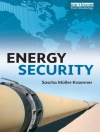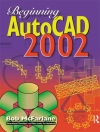Environmental alarmism has long been a political bellwether. Tell me what you think about the green apocalypse, and I'll tell you where you stand on the issues. But as the environmental heydays of the 1970s move into perspective, the time has come for a reassessment. Horror scenarios create a legacy whose effects have largely escaped attention. Based on case studies from four continents and the North Atlantic, <i>Exploring</i> <i>Apocalyptica</i> argues for a reevaluation of familiar clichés. It shows that environmentalists were less apocalyptic than commonly thought, and other groups were far more enthusiastic. It traces an interconnection with Cold War fears and economic depressions and demonstrates how alarmism faced limits in the Global South. It also suggests that past horror scenarios impose constraints on ongoing debates. At a time when climate change turns from a scenario into an experienced reality, this book charts paths for an age that may have already moved beyond the peak apocalypse.
Circa l’autore
<b>Frank Uekötter </b>is professor of environmental humanities at the University of Birmingham. He is the author of more than a dozen books on a broad range of environmental, political, and socioeconomic issues. Since October 2021, he is principal investigator of the global history project “The Making of Monoculture” with generous support from a European Research Council Advanced Grant.<b></b>












